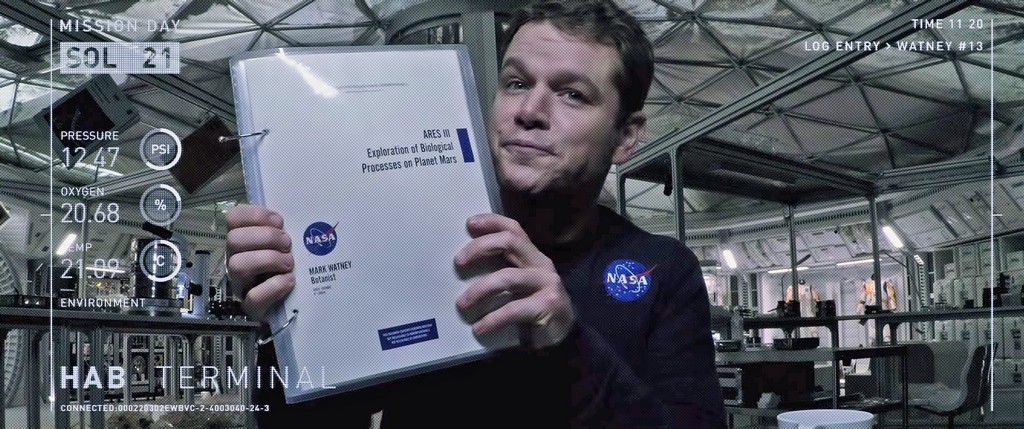By Shyikh Mahdi
The highly exciting demonstration of Elon Musk and SpaceX on making human beings an interplanetary species have attracted the spotlight yesterday; geeks, futurists and of course, scientists are widely discussing the possibility and feasibility of colonizing Mars. Although Musk insisted on transporting the first batch of humans to the red planet within a decade, legal minds are starting to think over a few little basic questions – how’d they govern everything in Mars? what kind of laws should be coming into play, and who’ll administer them?
Interestingly, the 2015 blockbuster thriller of Ridley Scott ‘The Martian’ has shed some light onto it. In the words of astronaut Mark Watney (Matt Damon) boasted on twisting the existing law in a classy manner, we’ve found this –
“I’ve been thinking about laws on Mars. There’s an international treaty saying no country can lay claim to anything that’s not on Earth. And by another treaty, if you’re not in any country’s territory, maritime law applies. So Mars is “international waters.”
NASA is an American nonmilitary organization, and it owns the Hab. So while I’m in the Hab, American law applies. As soon as I step outside, I’m in international waters. Then when I get in the rover, I’m back to American law.
Here’s the cool part: I will eventually go to Schiaparelli and commandeer the Ares 4 lander. Nobody explicitly gave me permission to do this, and they can’t until I’m aboard Ares 4 and operating the comm system. After I board Ares 4, before talking to NASA, I will take control of a craft in international waters without permission.
That makes me a pirate ! A space pirate!”

What happens if the dreams of Elon Musk and other visionaries really come true? If we are successful in overcoming the technological challenges and get enough lucky, human colonizers will step in to the red soil sooner or later. Then the real problem will come into existence, the nerve-twisting twists of sci-fi books and movies will come into reality.
Would you get to vote for a Martian colony leader? if you wanted to settle there permanently, would you get property — and what would the immigration process look like? what about trade and commercial regulations? for Muslims like us, how’d we going to determine prayer time and everything?
According to the United Nation’s Outer Space Treaty, 1967 [UNGA Resolution 2222 (XXI)] which is the most important body of space law, international law applies on Mars.This treaty has been signed by 129 countries of the world.
Outer space, including the moon and other celestial bodies, shall be free for exploration and use by all States without discrimination of any kind, on a basis of equality and in accordance with international law, and there shall be free access to all areas of celestial bodies. (Article I of the Outer Space Treaty, 1967)
Moreover, no single state or person can lay claim to anything that’s not on Earth:
Outer space, including the moon and other celestial bodies, is not subject to national appropriation by claim of sovereignty, by means of use or occupation, or by any other means. (Article II of the Outer Space Treaty, 1967)
It makes things pretty clear. Just because Neil Armstrong planted the American flag in lunar soil, that doesn’t mean the US owns the moon. In the same manner, if SpaceX or NASA become successful to land on Mars, they couldn’t declare themselves its sole owner or leader.
.@neiltyson Thanks for the welcome. And now we've got water on Mars! Do you think they check passports at the border? Asking for a friend.
— Edward Snowden (@Snowden) September 29, 2015
Will it be possible to seek asylum in Mars, after escaping Earth in any way?
An interesting provision of the Outer Space Treaty prohibits NASA Mars rovers from examining the liquid water bodies in Mars, since they are not ‘well protected’ and can contaminate the Mars. The treaty prohibits “anyone from sending a mission, robot or human, to any exploration that can contaminate the celestial environment with life from Earth“. (Article IX)
This section however, makes everything difficult. Without carrying out proper investigation and being risk free of contaminating Mars with the traces of Earth, will it ever be possible for us even to dream of colonize Mars?
Along with the groups of physicists, Astro-biologists, planetary scientists, legal experts have started to draft ideas for an inter-planetary legal system and space-specific laws. A number of scholars have raised a new angle in the legal debate; whether space should continue to be legally defined as part of the “common heritage of man,” and therefore unavailable for national claims, or whether its legal definition should be changed to allow private property in space. Legit concerns for the Earth are coming too; if the resources, sciences, intelligence and desperation can be used to make earth livable again, do we really need to be a multi-planetary species? are we planning to abandon our planet and focusing on contaminate another planet the same manner we ‘destroyed’ Earth?
The stakes are very high for NASA and Musk & Co. in this multi-planetary gamble; but, in every way, human race and humanity shall be the ultimate winner.
What could be the most crucial human right in the space? the right to oxygen, may be !

Earth from the surface of Mars
Shyikh Mahdi is a blogger and trainee Lawyer based in Dhaka, Bangladesh. He can be reached at mahdi@futrlaw.org



